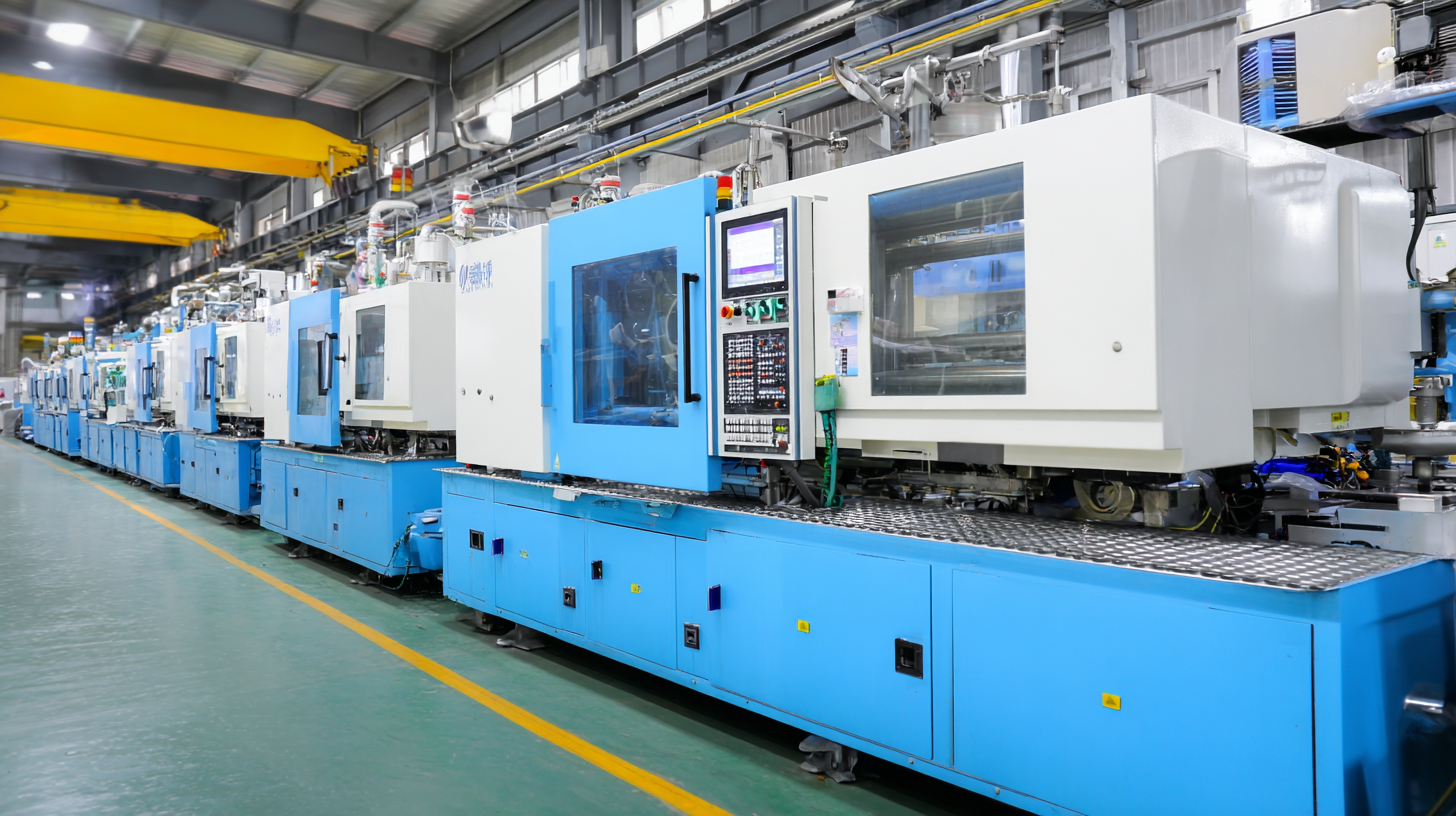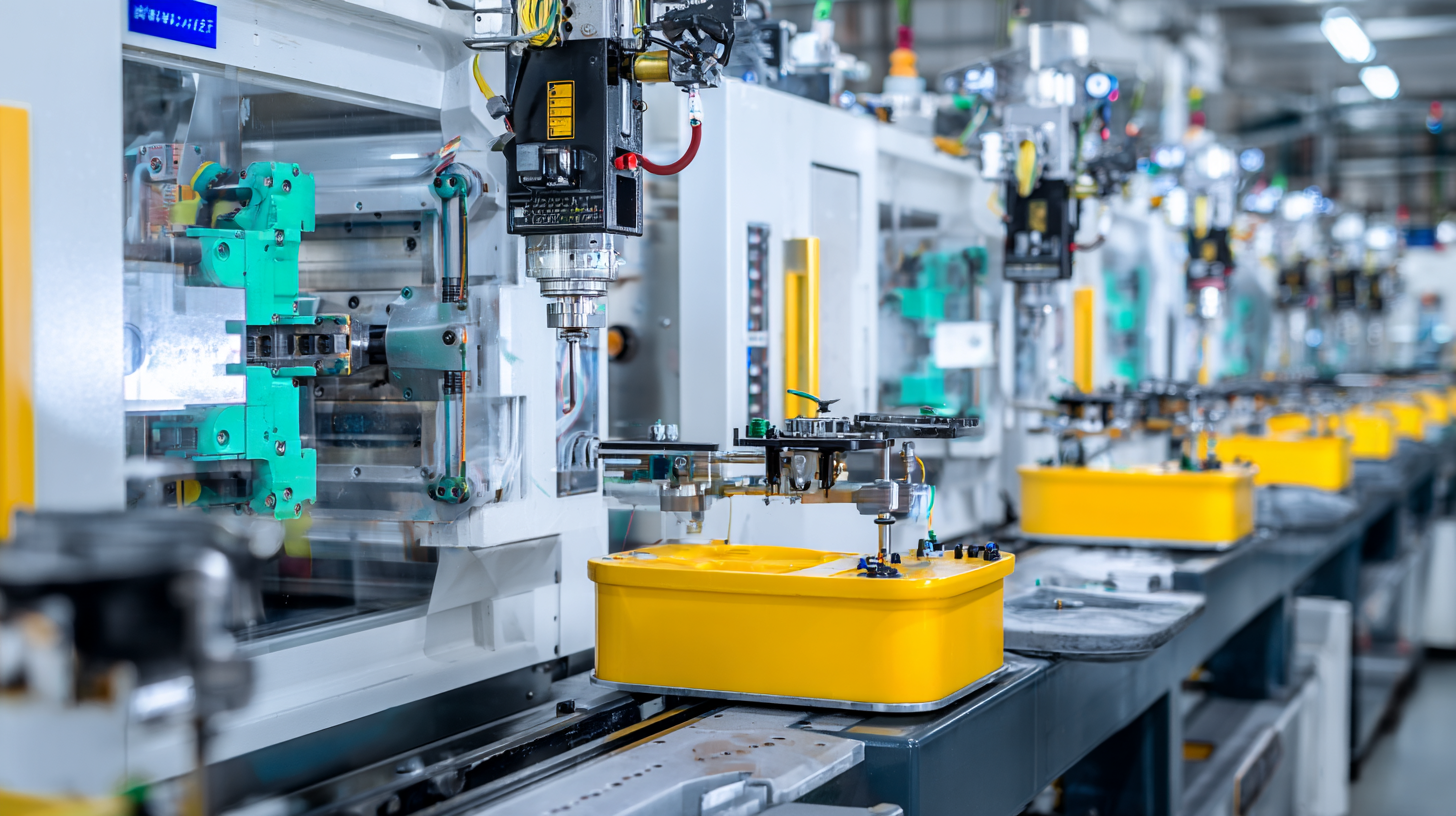How to Choose the Best US Injection Molding Solutions for Your Manufacturing Needs
As the demand for precision and efficiency in manufacturing continues to rise, choosing the best US injection molding solutions has become crucial for businesses seeking to maintain a competitive edge. According to a report by Market Research Future, the global injection molding market is projected to reach USD 394.5 billion by 2027, highlighting the significance of this manufacturing method in producing high-quality plastic components. The US injection molding industry, specifically, stands out for its technological advancements and adherence to strict quality standards, making it a preferred choice for manufacturers across various sectors. This tutorial will guide you through the essential factors to consider when selecting the right US injection molding solutions tailored to your manufacturing needs, ensuring optimal performance and cost-effectiveness.

Identifying Your Specific Manufacturing Requirements for Injection Molding
When selecting the best injection molding solutions for your manufacturing needs, identifying your specific requirements is crucial. Begin by assessing the type of products you want to produce, as different materials and designs may necessitate varying molding techniques. Understanding the volume of production and the complexity of your parts will help you determine the appropriate machinery and expertise needed for seamless operation.
**Tip:** Create a detailed list of your product specifications, including dimensions, material types, and production timelines. This information not only aids in communicating your needs to potential suppliers but also ensures that you select a solution tailored to your unique demands.
Additionally, consider the scalability of the injection molding solutions. Your manufacturing needs might evolve, so choose a solution that can grow with your business. Evaluate the flexibility of the molding equipment and the capabilities of the service provider to adapt to future changes.
**Tip:** Engage with providers to discuss potential future needs, and ask about customization options. A partner who understands both current and future requirements can significantly enhance your manufacturing efficiency.
How to Choose the Best US Injection Molding Solutions for Your Manufacturing Needs
| Criteria | Description | Importance Level (1-5) |
|---|---|---|
| Material Type | Identify the specific plastics and materials required for your products. | 5 |
| Production Volume | Assess the quantity of parts needed in a specified timeframe. | 4 |
| Precision Requirements | Determine the tolerances and precision needed for your parts. | 5 |
| Lead Time | Estimate the time required for initial production runs and delivery. | 4 |
| Cost Constraints | Evaluate budget limitations for manufacturing processes. | 5 |
| Design Complexity | Consider product design elements that may affect manufacturability. | 3 |
| Regulatory Compliance | Understand any legal requirements for your product's industry. | 4 |
Key Factors to Consider When Selecting Injection Molding Equipment
When selecting injection molding equipment for your manufacturing needs, several key factors should guide your decision-making process. One crucial aspect is the machine's tonnage, which must align with the requirements of your specific project. Industry reports indicate that using an injection molding machine with insufficient tonnage can lead to defects due to inadequate pressure; therefore, it is essential to calculate the required tonnage based on part weight and size accurately. The American Society of Mechanical Engineers (ASME) recommends a general rule of thumb where the machine’s tonnage should be 2 to 5 times the weight of the part to ensure quality production.
Another vital consideration is the material compatibility of the injection molding machine. Different materials, including thermoplastics and thermosetting plastics, require specific processing temperatures and settings. The Plastics Industry Association highlights that nearly 90% of molding issues can be traced back to improper material selection or machine settings. Understanding the thermal properties and viscosity of the materials you intend to use will help in choosing a machine that maintains the quality and integrity of your final product. By focusing on these key factors, manufacturers can optimize their processes and achieve better production efficiency.

Assessing the Reliability and Expertise of Injection Molding Suppliers
When selecting an injection molding supplier, assessing their reliability and expertise is crucial to ensure your manufacturing process runs smoothly. Start by evaluating the supplier’s track record and experience in the industry. Look for companies that have a history of successful projects and satisfied clients. Request case studies or references that demonstrate their capability to handle projects similar to yours. This can give you insights into their problem-solving abilities and consistency in delivering high-quality products.
Additionally, dive into their technical expertise and the technologies they employ. A good supplier should be well-versed in the latest injection molding techniques and have access to advanced machinery that can accommodate complex designs and varying materials. Engage with potential suppliers to understand their design capabilities, material knowledge, and commitment to continuous improvement. By prioritizing these aspects, you not only find a reliable partner but also one that can innovate and adapt to your specific manufacturing needs.
Comparing Costs: Budgeting for Injection Molding Solutions
When budgeting for injection molding solutions, it's essential to consider both upfront costs and long-term expenses. According to a report by the Plastics Industry Association, the average cost of injection molding ranges from $3,500 to $7,000 for tooling, depending on the complexity and material requirements. This initial investment can significantly impact your overall manufacturing budget, making it crucial to choose the right supplier who offers competitive pricing while maintaining quality standards.
Furthermore, operational costs, including cycle time and labor, should also factor into your budgeting process. A study by SME (Society of Manufacturing Engineers) reveals that efficient injection molding can reduce production cycle times by up to 30%. This efficiency not only translates to lower operational costs but also maximizes output, allowing manufacturers to meet demands without compromising on quality. By understanding these cost components, manufacturers can make informed decisions and select the best injection molding solutions tailored to their specific needs.
Evaluating After-Sales Support and Maintenance Services
When selecting the best US injection molding solutions for your manufacturing needs, evaluating after-sales support and maintenance services is crucial. A reliable supplier should offer comprehensive support that extends beyond the initial sale, ensuring that your equipment runs smoothly and efficiently over time. Look for companies that provide a responsive customer service team, readily available spare parts, and technical assistance that can help you troubleshoot any issues that may arise.

Maintenance services are equally important, as they play a vital role in prolonging the lifespan of your equipment. Regular maintenance checks can help identify potential problems before they escalate, minimizing downtime and production losses. Choose a supplier that offers flexible maintenance plans tailored to your specific production schedule and needs. Moreover, inquire about training programs for your staff, as well-trained operators can greatly enhance the performance and reliability of your injection molding machines. This combination of strong after-sales support and proactive maintenance ensures your manufacturing process remains efficient and meets your production goals.

